Updated Jan. 26
Network Responds With Suspensions, Investigation
Pair Creating Black and Brown Media Network
Boston Globe to Allow ‘Unpublishing’ Crime Stories
Two longtime CBS executives are on administrative leave while the company looks into alleged racist and sexist behavior, first reported by the @LATimes.@Jerickaduncan has the latest. pic.twitter.com/riAoPJroT5
— CBS This Morning (@CBSThisMorning) January 26, 2021
Network Answers With Suspensions, Investigation
The National Association of Black Journalists is calling for the resignation of two top CBS officials after “disturbing revelations from the LA Times about the racism and toxic work environment at the company,” and a quickly convened telephone meeting Sunday night between NABJ and senior officials of the corporation.
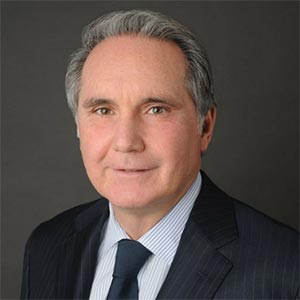 “Based on the racist comments detailed in the LA Times story as confirmed by two former CBS executives, NABJ is calling for the immediate termination” of Peter Dunn (pictured), President of CBS Stations and David Friend (pictured below), Senior Vice President of News for CBS Stations and VP of News at WCBS-TV New York,” NABJ said in a statement.
“Based on the racist comments detailed in the LA Times story as confirmed by two former CBS executives, NABJ is calling for the immediate termination” of Peter Dunn (pictured), President of CBS Stations and David Friend (pictured below), Senior Vice President of News for CBS Stations and VP of News at WCBS-TV New York,” NABJ said in a statement.
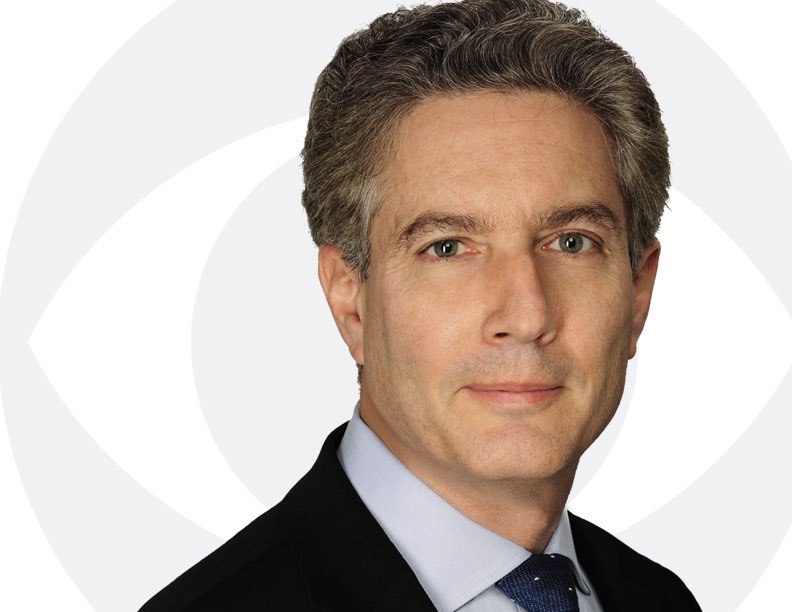 Spokespersons for ViacomCBS did not respond to telephone calls on Monday.
Spokespersons for ViacomCBS did not respond to telephone calls on Monday.
However, “In a statement late Monday, CBS said the two veteran executives were ‘placed on administrative leave, pending the results of a third-party investigation into issues that include those raised in a recent Los Angeles Times report. CBS is committed to a diverse, inclusive and respectful workplace where all voices are heard, claims are investigated and appropriate action is taken where necessary,’ Meg James reported for the Times.
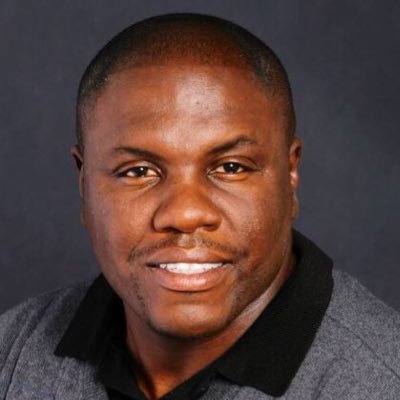 Late Tuesday, Vice President-Broadcast Ken Lemon (pictured) said in an NABJ statement, “We are thankful that, after meeting with NABJ representatives on Sunday, CBS leader George Cheeks moved swiftly. It provides a level of security for journalists who told us they have suffered irreparable damages to their careers. In the last 24 hours, we have been inundated with phone calls, emails and social media posts detailing disturbing accounts of abusive behavior and a toxic work environment.”
Late Tuesday, Vice President-Broadcast Ken Lemon (pictured) said in an NABJ statement, “We are thankful that, after meeting with NABJ representatives on Sunday, CBS leader George Cheeks moved swiftly. It provides a level of security for journalists who told us they have suffered irreparable damages to their careers. In the last 24 hours, we have been inundated with phone calls, emails and social media posts detailing disturbing accounts of abusive behavior and a toxic work environment.”
Roland S. Martin, NABJ vice president-digital, added, “We see this move by CBS as the first step. The allegations leveled against Dunn and Friend are too much to bear, and they are in no position to change the shameful conditions of CBS employees nationwide. They must go,” Martin said. “The stories we are hearing are shocking including that Philadelphia has not had a full-time Black news producer in six years. That is unconscionable in a city that is 43 percent African American.”
The NABJ statement also said, “based on information gathered so far, NABJ is now calling on CBS to release employees from signed nondisclosure agreements (NDAs) relating to charges of racism, misogyny and homophobia, during the tenures of Dunn and Friend, so they can speak freely about their experiences at the company.”
James wrote that “Cheeks, who took over operations of the legendary broadcasting company last March, sent a note to the CBS staff a little before 7:30 p.m. Pacific time to announce the move, acknowledging that ‘these have been a difficult few days.’
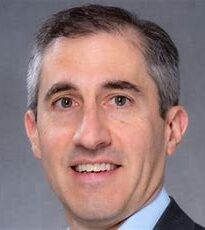 “Cheeks said that CBS Chief Operating Officer Bryon Rubin (pictured) would assume the leadership of the TV station group on an interim basis. ‘Bryon is very familiar with your business and ready to support your efforts.’ “
“Cheeks said that CBS Chief Operating Officer Bryon Rubin (pictured) would assume the leadership of the TV station group on an interim basis. ‘Bryon is very familiar with your business and ready to support your efforts.’ “
NABJ said in its Monday statement, “The troubling issues raised in the story are not just confined to one TV station. NABJ has heard from numerous CBS employees across the country and has been made aware of multiple lawsuits and investigations. It is clear that there is a massive problem among CBS owned-and-operated stations, and in order for the company’s culture to be transformed, it must begin with the firing of Dunn and Friend.
“The disturbing details that surfaced in Sunday’s LA Times are consistent with multiple workplace concerns currently expressed by CBS employees and brought to the attention of NABJ and to CBS executives in two in-person meetings in the last 18 months. Many of these employees have told us that they are afraid to speak about their concerns out of fear of retaliation from their bosses, including Dunn and Friend.
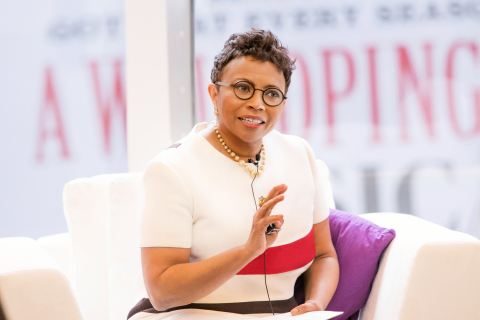
“Participants in the Sunday night meeting included NABJ Executive Director Drew Berry; Vice President-Broadcast Ken Lemon; Vice President-Digital Roland S. Martin; CEO of CBS-Branded Assets George Cheeks, who heads the CBS Television Network, CBS News, CBS Television Stations; and Marva Smalls, Executive Vice President and Global Head of Inclusion.
“NABJ President Dorothy Tucker has not been involved in any of these discussions with CBS because she is an employee of the company, and NABJ Board policy prohibits anyone from taking part in discussions about their own company.
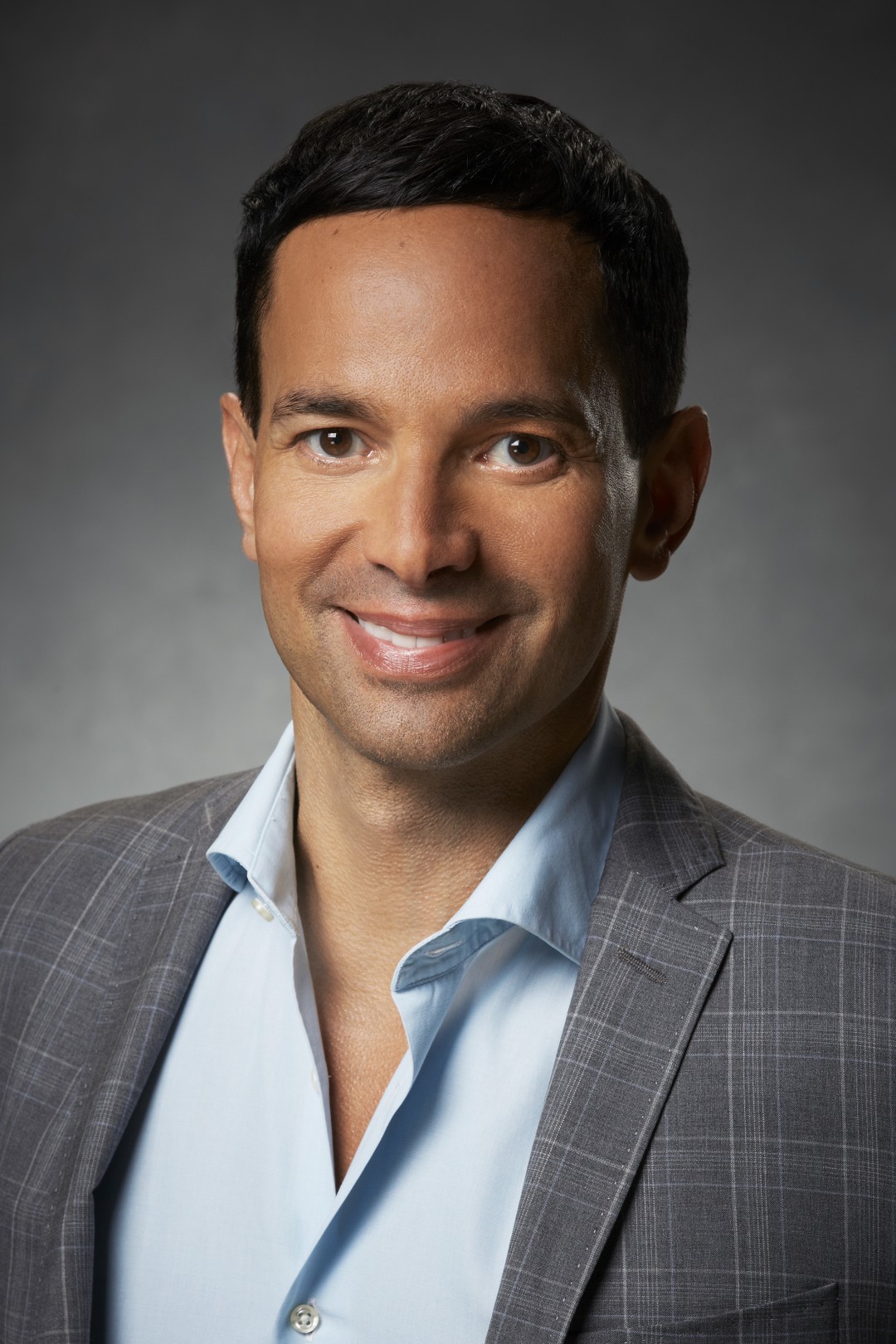 “Cheeks (pictured) and Smalls agreed with NABJ that there must be an external-led investigation, and pledged to work with NABJ on a path forward. . . .”
“Cheeks (pictured) and Smalls agreed with NABJ that there must be an external-led investigation, and pledged to work with NABJ on a path forward. . . .”
James wrote Sunday in the Los Angeles Times, “Since December 2019, CBS has been part of ViacomCBS, which is led by Bob Bakish — a Viacom veteran who has worked to change the culture. He hired George Cheeks, a former NBCUniversal executive who is biracial, to run the CBS Entertainment Group, which includes the TV stations.”
When Cheeks was named to the post a year ago, James wrote that “Cheeks, 55, had been the second-in-command at NBCUniversal Content Studios. He will have a more influential role and much larger portfolio managing the CBS-branded assets, including the CBS television network, CBS News and CBS Sports, the television studios, the syndication group and TV stations. He will work with the company’s digital group on ventures, including the streaming service CBS All Access. Cheeks spent more than a decade at Viacom before joining NBC in 2012.”
A November 2019 announcement naming Smalls, who is African American, said she would be “driving initiatives and fostering partnerships that promote and advance diversity and inclusion for ViacomCBS enterprise-wide both with internal and external stakeholders globally. In addition, she will retain her public affairs responsibilities for Nickelodeon as Executive Vice President, Public Affairs, Kids & Family Entertainment Brands, ViacomCBS Media Networks.”
- Kevin Kinkead, Crossing Broad: LA Times Story Contains Outrageous CBS Allegations, Including Racism Towards Ukee Washington
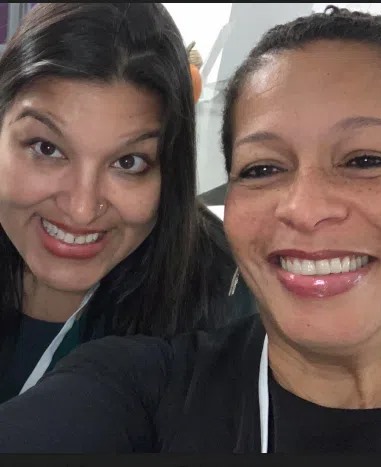
Pair Creating Black and Brown Media Network
Veteran journalist S. Mitra Kalita, most recently a CNN executive, and Sara Lomax-Reese, CEO of WURD-AM and WURD-FM, Black talk radio in Philadelphia, are creating a network of community media for Black and brown users, the two announced Monday.
“How does this work?” the pair ask on their website, URL.com (for “uplift, respect and love.”)
- “We distribute content through social media, newsletters and each other’s platforms.
- “We are a for-profit company and generate revenue through sponsorships, advertising, syndication and partnerships.
- “We share those profits with the members of the network. Everything we do is with an eye toward their sustainability.
- “We intend to spend the next few months sharing and distributing our content, securing advertisers and sponsors, and forming partnerships with mainstream media outlets. And testing and learning a lot.”
Kalita and Lomax-Reese credit a grant from the International Women’s Media Foundation with powering the beta site.
” I believe now is the time to radically reinvent the media industry by supporting Black and Brown owned/led organizations that serve communities that have been overlooked and undervalued for far too long,” Lomax-Reese says on the site. She also wrote, “one of the things that disturbed me most was a headline from the blog Journal-isms. It read: ‘As Mob Takes Capitol, BET Shows Tyler Perry; TV One Gives Viewers ‘Family Matters.’ WHAT?
“This is what happens when the biggest, national media companies charged with serving the Black community are owned by huge white conglomerates.’ (When BET was Black-owned, co-founder Robert L. Johnson also was criticized for skimping on serious content.)
Kalita says. “It feels like I’ve worked everywhere (CNN, Wall Street Journal, Washington Post, LA Times, launched brands like Mint and Quartz), always with the purpose of trying to make coverage more inclusive and accessible.
“Over the last decade or so, as my career veered more into digital, I realized the most successful content on the internet is bottoms-up, decentralized, rooted in a place or a people. It has a view from somewhere. I’m the publisher of Epicenter-NYC, a newsletter created to get my beloved community through the pandemic. I’m spending the next few months as a visiting fellow at Harvard University’s Nieman Foundation to research different models for URL.
“URL Media is a culmination of our journeys so far. . . .”

Boston Globe to Allow ‘Unpublishing’ Crime Stories
“The Boston Globe announced a new program that will allow people to ask the newspaper to update or anonymize past coverage of them online,” the newspaper announced Friday. “The ‘Fresh Start’ initiative is part of a broader effort to rethink the Globe’s criminal justice coverage and how it affects communities of color, amid a national reckoning over racial inequity.
“Similar to ‘right to forget’ programs that have cropped up in a number of newsrooms across the country, the undertaking is meant to address the lasting impact that stories about past embarrassments, mistakes, or minor crimes, forever online and searchable, can have on a person’s life.
” ‘It was never our intent to have a short and relatively inconsequential Globe story affect the futures of the ordinary people who might be the subjects,’ said Brian McGrory, editor of The Boston Globe. ‘Our sense, given the criminal justice system, is that this has had a disproportionate impact on people of color. The idea behind the program is to start addressing it.'”
Globe reporter Zoe Greenberg also wrote that Deborah Dwyer, a fellow at the Missouri School of Journalism who studies the ethics and practicalities of unpublishing, “said initiatives like this that require people to apply also raise questions about who will hear about them and therefore benefit.
“The Globe plans to advertise the initiative through social media and sustained community outreach. Still, Dwyer said, a prominent white attorney who reads the Globe and was arrested for driving under the influence may be more likely to apply to have his name removed from an article than a Black teenager of lower socioeconomic status arrested for the same crime who does not read the Globe.”
- Adrienne LaFrance, the Atlantic: The Trouble With Unpublishing the News (2015)
- Deborah Dwyer, Reynolds Journalism Institute: ‘Unpublishing’ may be a catchy term, but does it accurately encompass the issue? (Oct. 12, 2020)
CBS Stations’ ‘Hostile Environment’ for Blacks, Women
Jan. 24, 2021
L.A. Times’ Rare Look Inside TV Management
Norfolk Paper Says City’s More Segregated Today
KYW-TV anchor Ukee Washington with Philadelphia children. He created an on-air segment called “Brotherly Love” to highlight heartwarming stories but was reportedly disparaged as “just a jive guy.” (KYW-TV video)
L.A. Times’ Rare Look Inside TV Management
“CBS Television Stations President Peter Dunn and a top lieutenant cultivated a hostile work environment that included bullying female managers and blocking efforts to hire and retain Black journalists,” according to allegations by current and former CBS employees reported in a 4,100-word story Sunday, part of a two-part series by Los Angeles Times media reporter Meg James.
The story provides a rare look inside personnel decisions by television executives in which race and gender are factors.
 The central figure in the report is Dunn, 61, (pictured) who “maintains a tight grip on the stations and has final say over which local anchors and reporters appear on CBS, according to current and former employees and court testimony. It’s a powerful role, because the stations shape local news for millions of viewers in L.A., San Francisco and other cities where CBS owns a TV station. . . .
The central figure in the report is Dunn, 61, (pictured) who “maintains a tight grip on the stations and has final say over which local anchors and reporters appear on CBS, according to current and former employees and court testimony. It’s a powerful role, because the stations shape local news for millions of viewers in L.A., San Francisco and other cities where CBS owns a TV station. . . .
“Since 2009, Dunn has run the chain of 28 CBS-owned TV stations that employ 2,800 workers, the company said, and contributed an estimated $1.6 billion a year in revenue, according to a document filed in a Pennsylvania legal proceeding. CBS would not confirm the revenue estimate.”
Most of the report centers around KYW-TV in Philadelphia. “Located in Philadelphia’s Center City, KYW is one of the world’s oldest TV stations and the birthplace of the ‘Eyewitness News’ format. According to a former journalist, Black residents would derisively refer to KYW as ‘White-Witness News’ because, historically, many of the on-air journalists were white — in a county where 44% of the population is African American, according to the U.S. Census Bureau,” James wrote.
The allegations came in a 2018 investigation authorized by the CBS board, undertaken by “two outside law firms to investigate sexual misconduct claims against its longtime leader, Leslie Moonves, and to scour the company for traces of a toxic atmosphere.” Moonves was ousted in a well-publicized shakeup that ended with a higher profile for women at the network, including a top role for
Susan Zirinsky, who became president of CBS News, the first woman to hold the title.
Also departing amid sexual misconduct allegations were anchor Charlie Rose and “60 Minutes” chief and former network chairman Jeff Fager.
However, “Marty Wilke, former general manager of CBS’ Chicago TV station . . . contends that CBS was so focused on uncovering incriminating information about Moonves that it gave short shrift to the alleged abuses in the TV stations,” James wrote.
James also reported, “A Times review of court filings, CBS’ internal communications and interviews with two dozen current and former CBS television station employees found that many were troubled by the outcome of the investigation and questioned the company’s commitment to cleaning up its culture. Dunn and another senior executive remain in their jobs, they say, despite allegations of serious misconduct.”
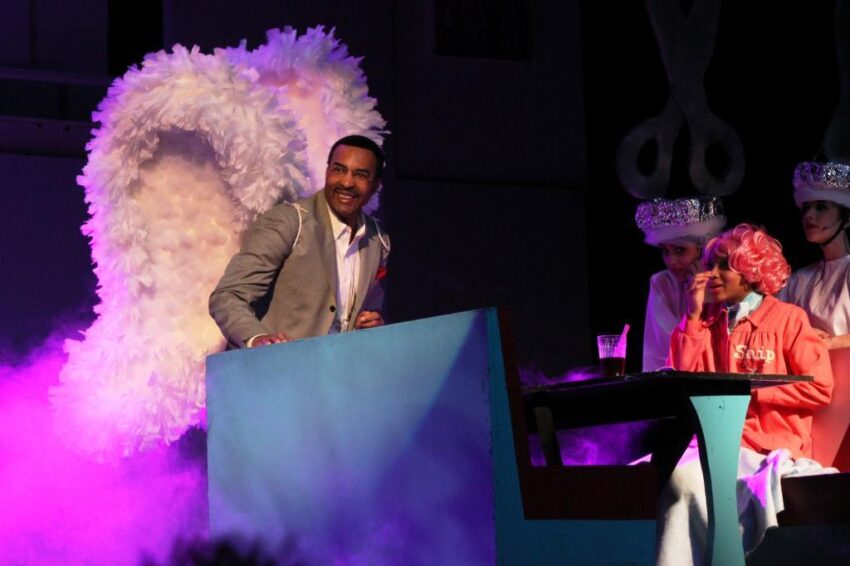
Two of the Black journalists mentioned in James’ story are KYW anchor Ukee Washington, a “hometown hero” promoted to evening news anchor in 2015, and Brooke Thomas, a TV news anchor from Oklahoma who was working in Dallas.
Brien Kennedy, a veteran general manager brought in to overhaul the station in 2015, “said in an interview that Dunn frequently disparaged Washington, calling him ‘just a jive guy.’
“ ‘Peter would say: “All he does is dance … dancing, dancing,” ‘ Kennedy recalled in an interview.” Dunn fired Kennedy in 2019.
“Washington was popular in the community. For several years, the alum of the famed Philadelphia Boys Choir led children in a group dance at a Catholic school fundraiser. He created an on-air segment called ‘Brotherly Love’ to highlight heartwarming stories. “
Washington did not respond to the Times’ requests for comment, nor those from the Philadelphia Inquirer.
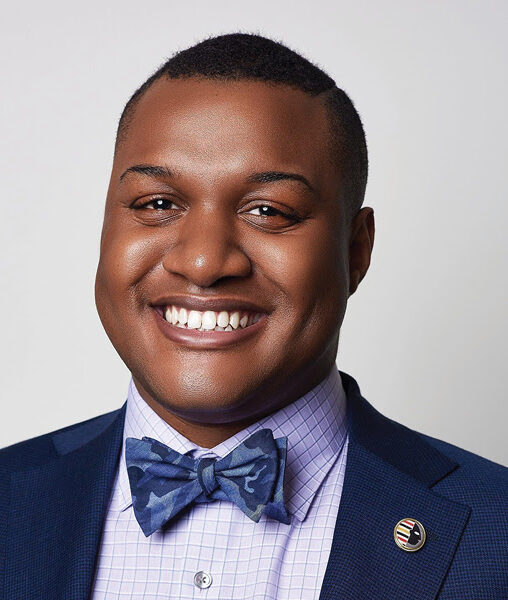 However, Ernest Owens (pictured), president of the Philadelphia Association of Black Journalists, said in a statement, “A newsroom that racially degrades one of its hardest working Black journalists is a newsroom that mocks the integrity and trust of the communities it aims to cover. CBS 3 and other news stations should not only aim to pander to Black audiences with inconsistent gestures, but actively work to make their actions speak louder than racist rhetoric.”
However, Ernest Owens (pictured), president of the Philadelphia Association of Black Journalists, said in a statement, “A newsroom that racially degrades one of its hardest working Black journalists is a newsroom that mocks the integrity and trust of the communities it aims to cover. CBS 3 and other news stations should not only aim to pander to Black audiences with inconsistent gestures, but actively work to make their actions speak louder than racist rhetoric.”
The statement added, “PABJ is calling on more than just a formal apology from CBS, but immediate changes to their managerial practices, culture, and vetting.
“We welcome a conversation and discussion of actionable changes with CBS 3 executive management on this matter and propose working together on a collaborative plan that addresses the systemic racism that is reflected in their newsroom, community outreach efforts, and their coverage.”
With Washington’s move to evenings, KYW managers needed to retool the morning show.
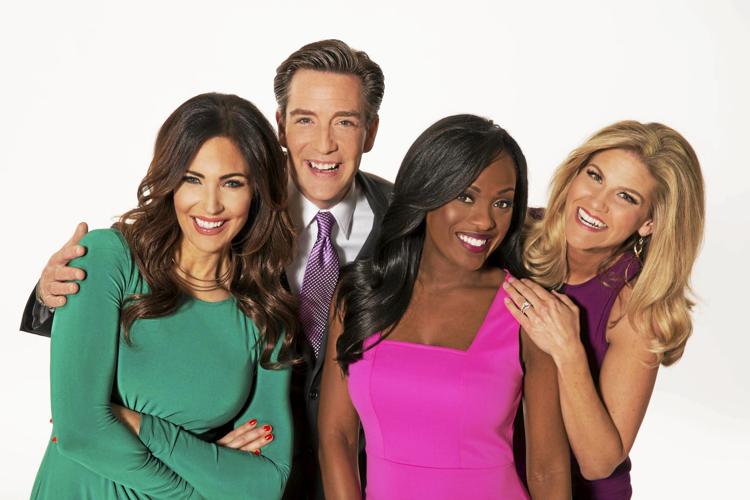
“The show launched April 4, 2016,” James wrote. “Former KYW employees described the mood in the station that day as electric. [Veteran news executive Margaret] Cronan said she was certain the debut had gone well.”
But the following day, James wrote, Cronan said she received an angry call from Dunn lieutenant David Friend.
“Cronan was among five women interviewed by The Times who sought investigators’ help to end alleged mistreatment at CBS’ TV stations.
“ ‘It was just immediate screaming on the phone, not constructive criticism — just venom and profanity,’ Cronan said. ‘He screamed: “Tell her to shut the [expletive] up,” ‘ in reference to Thomas. ‘I was flabbergasted,’ said Cronan, who kept her notes from that conversation, which The Times has examined. ‘I’ve never witnessed that type of behavior in the workplace. ‘. . .
“Now in L.A., Thomas declined to comment for this story.”
“KYW has lost several prominent Black journalists. In 2015, a rising star, Steve Patterson, left the station for NBC News. In 2016, Justin Finch, at the time the station’s only Black male reporter, joined an NBC station in Washington. Both declined to comment.
“Rahel Solomon, a Philadelphia native and the daughter of Ethiopian immigrants who had replaced Thomas as KYW’s morning co-anchor, also exited. Kennedy said he pressed Dunn for months to extend Solomon’s contract, but during a two-hour-plus phone call to discuss the matter, Kennedy said Dunn raised ‘bizarre objections’, such as saying, ‘I hate her face.’ (Kennedy described the episode in a July 2019 document, reviewed by The Times, that recounted instances of race and sex discrimination he said he witnessed.) Solomon, who declined to comment, joined CNBC in 2019.
“The Times spoke with four Black journalists who worked at KYW. None agreed to an on-the-record interview, citing fear of reprisal. But in conversations, several relayed instances of unequal treatment and racist comments. They described the CBS station as ‘hostile’ and ‘dysfunctional.’ Some expressed frustration with what one called a ‘cookie-cutter approach’ to local news.
” ‘It’s like they have no idea who should be telling the stories,’ said one Black journalist, formerly of KYW. ‘They thought I was disposable, and in that kind of environment, you become an ornament. That happens a lot in the industry — but especially at KYW.’ ”
James also wrote, “CBS defended its inclusion efforts at KYW, saying 45% of the station’s on-air reporters and anchors are Black, Indigenous or other people of color.
“ ‘I believe that I — and our stations — have a strong track record of hiring, supporting and placing women and BIPOC journalists in important roles as anchors, reporters and news directors,’ Friend said in a statement to The Times. ‘These comments I may have made about our employees or prospective hires were only based on performance or qualifications — not about anyone’s race or gender. ‘ ”

Norfolk Paper Says City’s More Segregated Today
“Today, decades after Brown v. Board of Education and the Fair Housing Act were supposed to break down barriers dividing the races, neighborhoods in Norfolk are even more segregated than they were during the Jim Crow era, and the schools aren’t far behind,” the Virginian-Pilot wrote Thursday in a summary of a new series.
“The city of Norfolk is segregated,” reporters Sara Gregory and Ryan Murphy declared Thursday.
They added, “In fact, [it’s] more separated by race now than it was in the Jim Crow era, the post-Reconstruction period when racist laws and unwritten rules were put in place to oppress and segregate Black people across the American south.
“Norfolk didn’t start out segregated, nor did people naturally clump together by race. Decisions were made by powerful people and government entities that divided the city.
“As Norfolk embarks on a mission to reshape a huge swath of itself in what it’s calling the St. Paul’s redevelopment, The Virginian-Pilot is exploring the ways the city is divided by race and class, how it got that way and, perhaps most importantly, what can be done to mend those divisions. . . .”
A separate piece acknowledged that “Sara Gregory and Ryan Murphy, the two reporters behind ‘Dividing Lines,’ are white,” they began. “So is Eric Hartley, their editor.
“All three of us grew up in white, suburban areas. We went through school with classmates who looked like us. As adults, we live in largely white neighborhoods and socialize in largely white spheres.
“We also work for newspapers with a spotty-at-best history of covering the Black communities of Hampton Roads. The Virginian-Pilot won Pulitzer Prizes in 1929 and 1960 for editorials, respectively, condemning lynching and criticizing Virginia’s decision to close schools rather than integrate them. But at some points in the histories of The Pilot and the Daily Press, coverage of Black communities and issues was virtually non-existent or outright hostile. The Pilot’s owner also owned the pro-segregation Norfolk Ledger-Dispatch.
“And we work for a company that, by its own admission, is not diverse enough. We have seven Black journalists out of a staff of 71 — not quite 10% — covering a region whose major cities range from 20% to 55% Black. . . .”
The acknowledgment “drew heated responses from readers on social media,” Meghan Roos reported Friday for Newsweek. The wording of the piece was revised.
To subscribe at no cost, please send an email to journal-isms+subscribe@groups.io and say who you are.
Facebook users: “Like” “Richard Prince’s Journal-isms” on Facebook.
Follow Richard Prince on Twitter @princeeditor
Richard Prince’s Journal-isms originates from Washington. It began in print before most of us knew what the internet was, and it would like to be referred to as a “column.” Any views expressed in the column are those of the person or organization quoted and not those of any other entity. Send tips, comments and concerns to Richard Prince at journal-isms+owner@
View previous columns (after Feb. 13, 2016).
View previous columns (before Feb. 13, 2016)
- Diversity’s Greatest Hits, 2018 (Jan. 4, 2019)
- Book Notes: Is Taking a Knee Really All That? (Dec. 20, 2018)
- Book Notes: Challenging ’45’ and Proudly Telling the Story (Dec. 18, 2018)
- Book Notes: Get Down With the Legends! (Dec. 11, 2018)
- Journalist Richard Prince w/Joe Madison (Sirius XM, April 18, 2018) (podcast)
- Richard Prince (journalist) (Wikipedia entry)
- February 2018 Podcast: Richard “Dick” Prince on the need for newsroom diversity (Gabriel Greschler, Student Press Law Center, Feb. 26, 2018)
- Diversity’s Greatest Hits, 2017 — Where Will They Take Us in the Year Ahead?
- Book Notes: Best Sellers, Uncovered Treasures, Overlooked History (Dec. 19, 2017)
- An advocate for diversity in the media is still pressing for representation, (Courtland Milloy, Washington Post, Nov. 28, 2017)
- Morgan Global Journalism Review: Journal-isms Journeys On (Aug. 31, 2017)
- Diversity’s Greatest Hits, 2016
- Book Notes: 16 Writers Dish About ‘Chelle,’ the First Lady
- Book Notes: From Coretta to Barack, and in Search of the Godfather
- Journal-isms’ Richard Prince Wants Your Ideas (FishbowlDC, Feb. 26, 2016)
- “JOURNAL-ISMS” IS LATEST TO BEAR BRUNT OF INDUSTRY’S ECONOMIC WOES (Feb. 19, 2016)
- Richard Prince with Charlayne Hunter-Gault,“PBS NewsHour,” “What stagnant diversity means for America’s newsrooms” (Dec. 15, 2015)
- Book Notes: Journalists Follow Their Passions
- Book Notes: Journalists Who Rocked Their World
- Book Notes: Hands Up! Read This!
- Book Notes: New Cosby Bio Looks Like a Best-Seller
- Journo-diversity advocate turns attention to Ezra Klein project (Erik Wemple, Washington Post, March 5, 2014)
.
